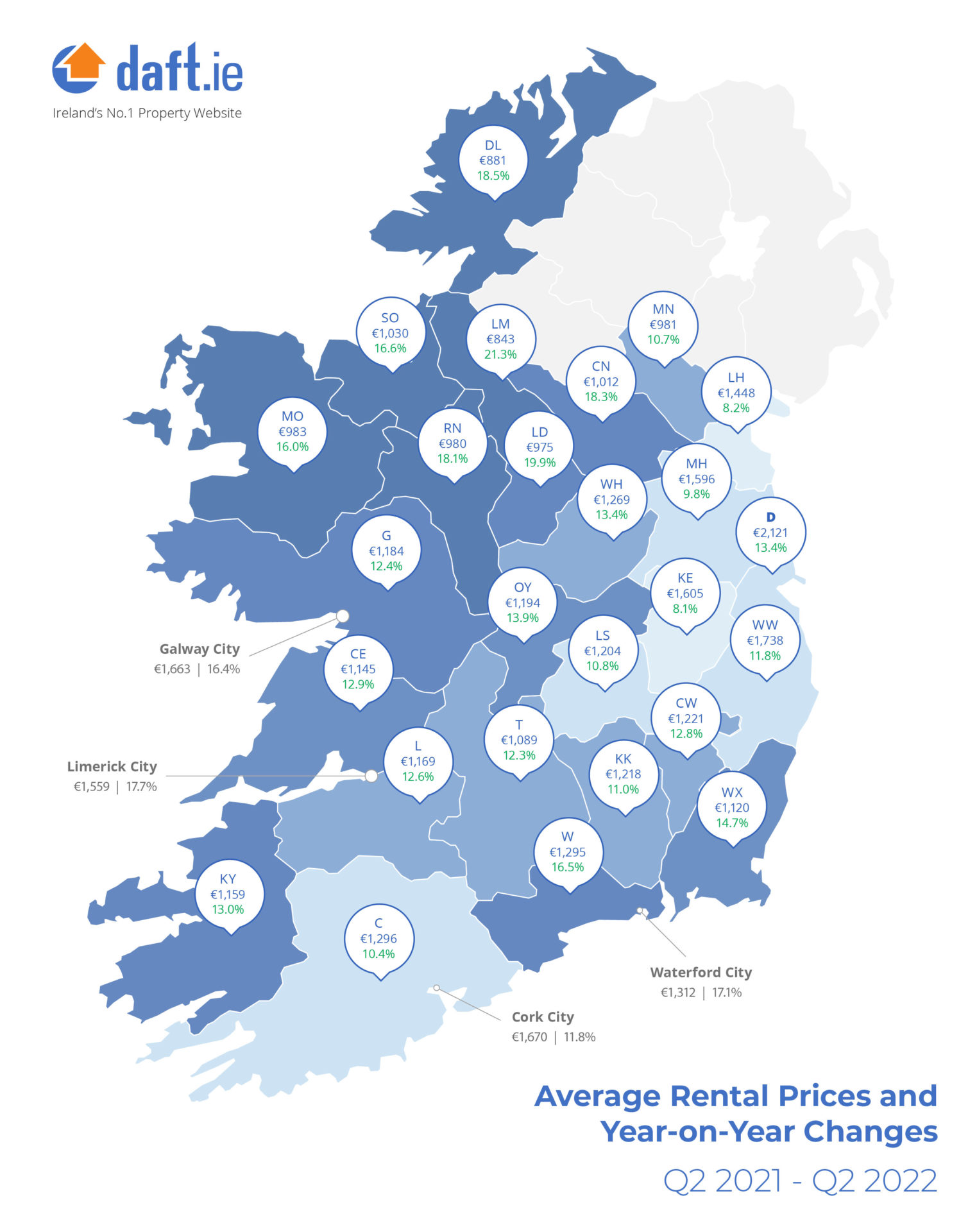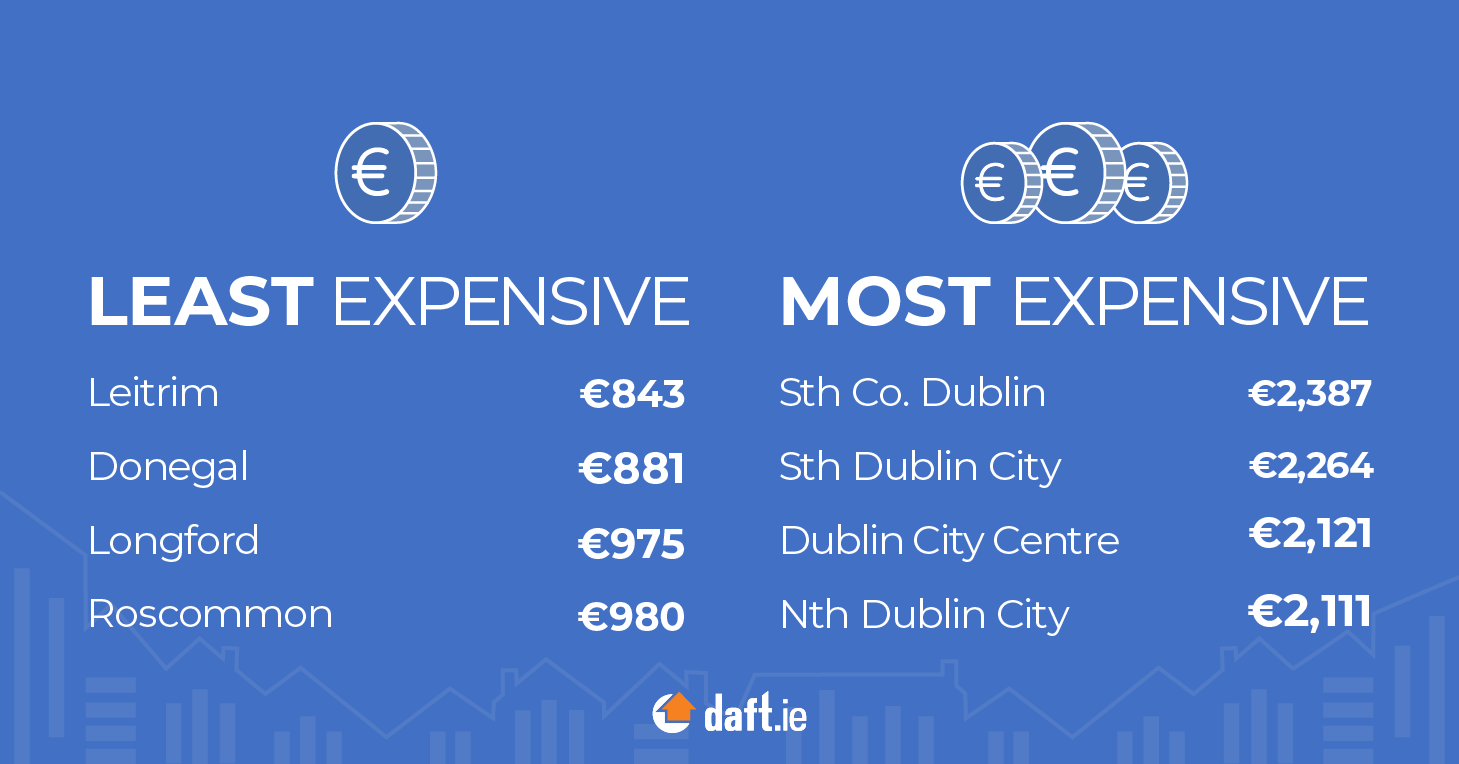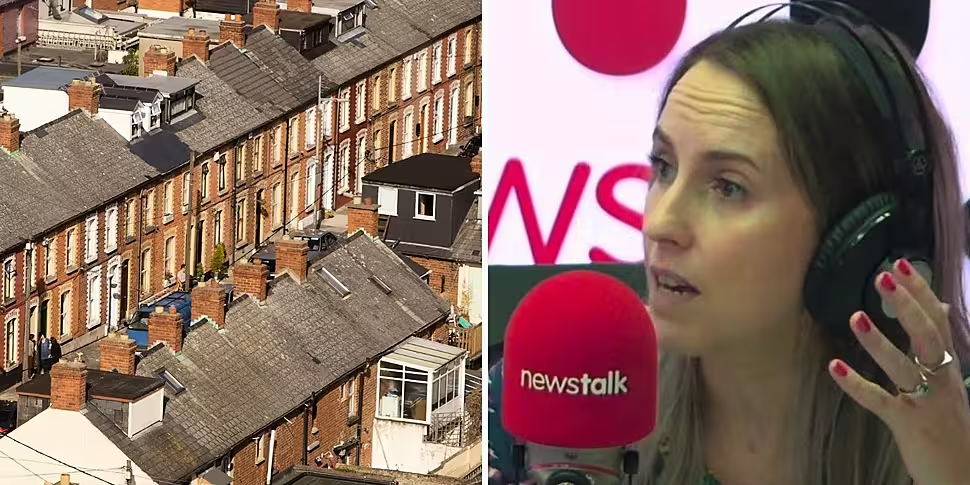Property owners who want to keep house prices high are a “little bit complicit” in the rental crisis, according to Newstalk presenter Aideen Finnegan.
It comes as the latest Daft report warns that the supply of rental properties in Ireland has ‘collapsed’ – with price inflation now at a 15-year high.
There were just 716 properties advertised for rent in Ireland on August 1st, down from about 2,500 this time last year.
There were nearly 24,000 properties available to rent at peak availability in 2009.
"Rental inflation hitting a 15-year high" - is rent going up near you? @NTBreakfast pic.twitter.com/fWlodsOVuZ
— NewstalkFM (@NewstalkFM) August 10, 2022
On Newstalk Breakfast this morning, presenter Aideen Finnegan said people have become numb to the rental crisis.
“I mean, supply has just completely collapsed,” she said. “It’s an appalling vista and I think we have become kind of immune to hearing about it.
“It is not that it's gotten less serious or diminished in any way but we’re just numb to it. These figures are so stark.”
Rental crisis
According to the Daft report, rents in Ireland are now an average of 12.6% higher than they were this time last year.
The highest rents in the country are in South County Dublin where people are paying an average of €2,387 per month.
“I mean you can even see there is this new niche TikTok where Americans and international students bring people around on their rent viewing and you’re just seeing these jokes of places where you can’t open the fridge fully because it is up against the bed or wherever,” said Aideen.
 Source: Daft.ie
Source: Daft.ieShe questioned whether homeowners eager to keep property prices high should shoulder part of the blame.
“I just think it’s brutal and I think we’re in this system now where, perhaps policy started this problem but now, are we all a bit complicit in it?” she said.
“Most people, at the moment, own their own home. We have a growing cohort of people who might never do so and they’ll become more influential as those numbers grow, but at the moment, the system is stacked in favour of the property owner.
“Justifiably, people got into property as a way of securing their future, with a pension or a rental income and that, but when you’re trying to use property for profit is not going to work for the common good.
“I do think there is a bit of crocodile tears, because people want to keep their house prices high, they don’t want new developments.”
 Average advertised rental prices. Image: Daft
Average advertised rental prices. Image: DaftShe said many homeowners buy houses with ambitions of trading up later in life.
“So there are lots of people who want to keep their property prices high,” she said. “They know having big developments built in their area will bring those down, so they object to them.
“I think probably we need to share a bit of responsibility about this now.”
Shane Coleman said public policy has encouraged property speculation over many years and as a result, the price of land is far too high.
“We have developers who are hoarding land,” he said. “I mean, if we taxed land properly so it was used efficiently, I think that would be a really good move but I’m not sure the political will is there to do it.
“But also, we’ve driven landlords out of the market – probably through well-meaning measures, but those single house owning small landlords, we’ve driven them out of the market.
“I think we really need to be careful. When you tinker with the market here are always consequences.”
Root and branch
Aideen agreed that ‘tinkering is the problem’ noting that the housing crisis needs ‘root and branch’ reform.
“Everything is kind of just to try and satisfy this problem or this problem and weigh people’s interest against each other,” she said. “It’s not working.”









